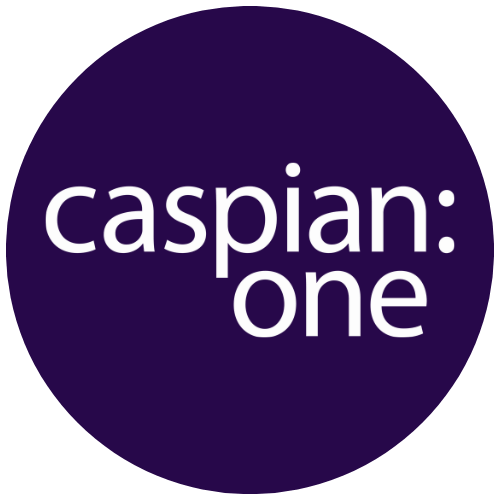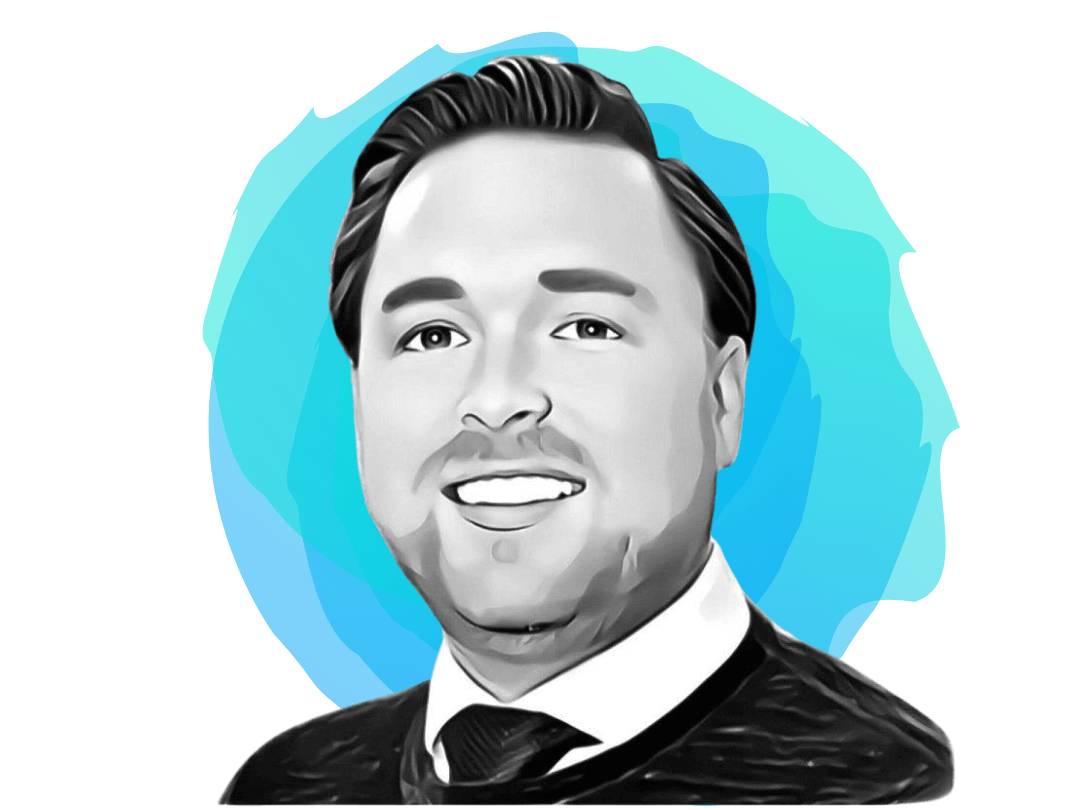Our Stories > Phil Hodgetts - Broadcast
Phil Hodgetts
Joined as a Broadcast Engineering Resourcer in November 2009
Today, Head of Strategic Accounts for the Broadcast division and CPC Projects Lead
Responsible for client relationships, project objectives and a team of consultants
[Interviewed March 2019. Updated 02/2020]
Phil, what was your path to Caspian One?
I already worked in the Broadcast Industry as a Journalist, but for personal reasons needed to relocate. At the time there were no journalism opportunities in Bournemouth, so I got a job in sales selling insurance - which wasn’t ideal. I did that for six months. I didn't like it.
One night a friend who worked at Caspian One mentioned they had a broadcast division, which immediately grabbed my attention. I applied, interviewed, and got the job.
So it was returning to the Broadcast industry that appealed?
Absolutely. I didn't want to be working in any old sales job, I wanted a career that somehow linked back to my degree - and coming from a journalistic background I was comfortable asking people lots of questions; learning about them for news stories and so-on.
As a Journalist, you need to have the skills and confidence to just talk to anyone. I’ve interviewed Harry Redknapp, Prince William, Girls Aloud - MP’s, Terry Pratchett, Patrick Moore etc. They’re all interviewed constantly, so you need to know how to engage with them immediately.
That skillset transfers directly into recruitment, allowing me to effectively comprehend and qualify jobs. It enables me to take clients on the hiring journey so they can realise within our conversations, that I have what they're looking for - even when it’s not outlined in the original job description.
Okay - so what were those first weeks like, settling into recruitment as a career?
I didn't get it to start off with. It was really tough because the majority of the job was phone-based, especially when I first started. There was a learning curve, going from speaking with people face-to-face to holding the same engaging conversations over the phone.
Now over a decade later it's really easy, because of those early mistakes. I've lived through the reasons why I need to ask a certain question and gain specific information.
You can't teach that.
There were times in the first 9 months I questioned whether actually, this is right for me. But getting out of bed, going into the office the following morning, picking up the phone… that built my resilience and taught me to change tact or do something differently.
What is it about recruitment that you enjoy? What motivates you… even to this day?
It's two things. I really enjoy being around people in the broadcast industry. They’re a certain type of individual, typically with jobs that are hyper mission-critical - so they have to have a very different approach to life as well as their jobs, which makes them quite exciting individuals.
It's brilliant being able to indulge yourself with like-minded, creative people - particularly when it’s part of your daily routine. After a while, cultivating relationships with people in the industry becomes more of a social opportunity. There are people that I spoke to during my first weeks even, who are now really good friends. Getting that out of a job is amazing, as is finding jobs for your friends. It's just like really unique.
The people side drives my motivation, but the technology also interests me. I like to have the best quality picture at home, the best quality sound I can get. Being able to work with people who make that happen, that is quite cool.
Going home, turning the telly on and watching the football in ultra high definition - whilst knowing that people you've placed are working now, on how that picture gets from the football ground to your television set… that’s really exciting, as is the fact I know how that happens!
My wife doesn't care. She still watches TV channels in standard definition. Madness, complete madness.
Turning the table, what value do people get from working with you as a recruiter? - What do you think you bring to candidates and clients?
My experience probably. There are people I’ve placed multiple times now because I've been with Caspian One for almost a decade. I've seen people grow their own careers. Maybe the first year I worked here I placed somebody as an engineer, you know, where it was their entry level role from a university. Now this year I’m placing them as a Head of Technology or as a Solution Architect, and somewhere in the middle, they've done other things…
That's quite cool, because you've got that honest experience to share which helps younger, entry-level people coming into the industry - or individuals that at a certain point in their career thinking “I need to change this up a gear, I need to do something different, what could I do?”
I’m able to safely reflect back past experiences and guide people on their ideal career path, because I've actually put others into those jobs previously, and they've been really, really successful. I've got that history, so that's quite a good value add for people.
Then, there’s my authenticity as well. Say somebody applies for a job, and it's the wrong job that they're applying for - I know how to deal with that, the right way. Who wants to be told that they're not right for a job after all?
Say a person applies for a CTO role at a massive tech firm, having not been a CTO previously. That person has applied for that job because they believe they are capable of being CTO, given their experiences to-date.
So when I then ring that person back and say they can’t apply because they’re not ready yet, it's not a nice thing to hear. I also don't know that person's makeup as an individual. They could be extremely resilient, so comments pings off of them like a pebble to a piece of
metal. That's great, but other people might not be as robust - you still have to give that feedback.
It’s being able to understand and explain why an individual's not going to be able to apply, that’s the key. Having evidence to say that actually, I know enough about this job to say that if you interviewed for it, it wouldn't go anywhere - because actually the CEO is looking for a CTO who's been a CTO before, and you've not got that experience.
It is also about not giving up on that individual. You’re a Programme Manager who wants to be a CTO, brilliant. What type of companies are going to enable you to be able to become a CTO? Okay - these companies are great.
Now I’ve got an idea of actually what you’re looking for when a CTO we hire comes to me needing a Programme Manager with aspirations to become CTO, I can reconnect with you.
In the meantime, that person might find an alternative path to CTO, and that's not a bad thing. As long as I kept in touch with you, and I've spoken to you about what your motivations are and why, and I said: “Hey, look we haven't got anything on at the moment but keep trying, give us a call back”. We don't get paid for that at all, but it’s really important.
We get paid to find a person for a job, that’s it. All of the other stuff that we do to find that right person is our research and development. If we were a software company and we were selling software, the people we know would be our programming languages. So it's like, we've got to ensure that we've got the right code where we need it, when we need it, in order to facilitate our client's needs.
You have to constantly nurture authentic relationships with people in the market, so If and when they need you, they know they can come to you.
Let's talk about where you are now and what's going on in your world. What are you working on? What's does your world look like?
So my world has developed into more of a consultative role with our clients, in which I develop partnerships with companies in order to help them plan effectively, source skills, and move forward with unique projects.
These clients are the Broadcasters, Telcos and Operators who quite often will have large programs of work driven by a big technology change, or a refresh, or they're adding a new service to their offering which needs to be built out.
I’m involved in large programs of work where a real shortage of a certain skill set to actually convert that program of work has been identified. Much of this is related to the Broadcast industry converging with IT - so networking and Cloud opportunities associated with how a Broadcaster or Service Provider processes content for example.
What’s interesting is trying to fish out the skills that allow that change to happen.
A-lot of our clients are asking for capabilities to deal with technology that no one has ever really dealt with before. So, where do you go to look for those, right?
If no one's ever dealt with that technology before in that capacity then yeah, it's kind of like looking for the smallest needle in the biggest haystack in the world.
There is a very slim chance that you've got people sat there waiting, who've already been skilled up on this technology and have the experience delivering these types of projects. Typically because the company that you're working with are the first people to develop or deploy this type or level of technology.
So I work with the client to understand well, if we can't find people who are working with a specific technology that no ones worked with before, what type of individuals do we need in order to be able to achieve a project? - because that's where the shift is.
So do you find you’re doing a lot more in relation to identifying associated skills, associated technologies, and even personality matching?
Yes - that’s the role we play for our clients, whether they see it or not. And they may not actually know that this happens. It's not something that is in a contract, right. We don't sit there with a statement of work and say “right to engage with our company you're going to need x, y, z and we will do all of this for you, and then you will pay us this fee etc…”
We just have a contract that says - when we find you the right person, you will pay us this fee. However, there's so much more involved in finding that individual. You have to really think proactively around all sorts of issues and problems, whether it be a certain cultural fit with a team, whether it be a technology fit, whether it be people working with technologies that no-one has before.
Companies like Amazon, Facebook, Netflix, they've got so much money that we're seeing skills being picked up from the marketplace, and plugged into these companies that are somewhat new to the broadcast industry, for sometimes, almost double salaries.
Clients then wonder why there's no-one available; it’s because these big tech companies who've got billions and billions of pounds have thrown money at it. Whose problem is that?
Well, it’s ours because we've still got to go and find those people. When you break it down our job is way more complex than what the average joe would ever think a recruitment consultant does.
All they think is you're a guy messaging on LinkedIn being annoying?
Yeah, yes. Sometimes recruiters are like that because actually, they haven't got a real sense of what a client is looking for. If you're just frenzied firing message out to LinkedIn saying “I need you to work on this contract, but I don't really know who you are and you’ve got no idea who I am” - that's not really going to get you anywhere.
Clients aren’t just buying the individual from us, it's the whole deal around everything that we've learned about the industry, and everything we know about where to find the right people. That's the key thing. Some of our clients see it, some of our clients don't… some of our clients don't want to see it because they just want the person, that's it.
So in terms of industry knowledge and insights, what do you think have been the biggest tech innovations that have affected you in the last 12 months?
So for me in the last twelve months, it's been how video and IP work together; looking at demands from content on the move, and successfully delivering the best-looking content that you can get. Like me with the UHDTV at home, I want to see everything perfectly and getting that video quality through an IP network isn't straightforward. The high-level overview is, but the actual fundamental methodologies of how you encapsulate video over IP or you wrap a transport stream to do this job or that job, is pretty complex.
That's been the biggest change that I've been affected by because one of my key clients has been quite heavily involved in all of that. Other changing areas of the industry would be the Broadcasters understanding of what Cloud technology is, and where to put content within the Cloud. That's increased speed quite dramatically over the last 12 months.
If you've got an OTT platform and you've got reams and reams of content, and you've got people everywhere globally wanting that content, how do you keep it secure?
How do you ensure that they're getting the right content? How do you ensure they get the right information with that content? How do you ensure that content is of high quality? How do you also ensure that that content doesn't take an age to downloaded or stream, and consistently buffers?
There are all sorts going on in the industry around that subject, and how to utilize cloud technologies to the max to be able to get the best outcome for the consumer sat at home with their phone or laptop, or iPod, or smart TV.
Looking at the future of this industry, what are you advising candidates to be learning and pursuing?
It depends on what that person is looking to do within their career, but 100% I’d recommend getting on top of IP network infrastructures and the technologies involved in creating that infrastructure.
Additionally, learn how video is moved around from this device to that device, to this format with these standards etc. Get your head around all of the video standards out there, and understand what they do and where they are used, and why they’re used.
We're getting asked for broadcast engineers who have CCIE's. That's really hard to locate. Finding a network engineer with a CCIE who is happy to work within the broadcast industry is hard enough, but somebody with broadcast experience and networking experience, for example, both together, well they’re very rare.
They're also not the cheapest people around when you do find them, so if you were a Broadcast Engineer and you're wondering how to develop your skill sets, I would say look into networking or look into Cloud-based technologies.
Why not learn a new scripting language? Get some Pearl and Python under you, because that would be of great benefit to you. Moving forward, if you’re able to just lift the hood up on some technology, see where it's not working properly, write a quick script and get it working again - people will love you.


